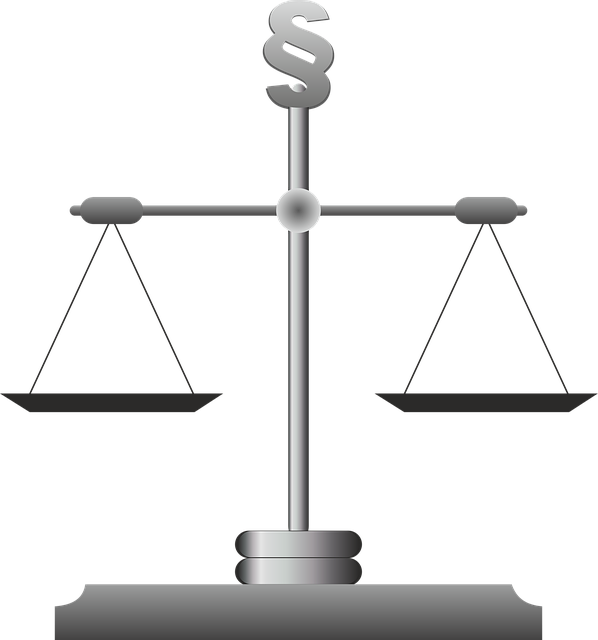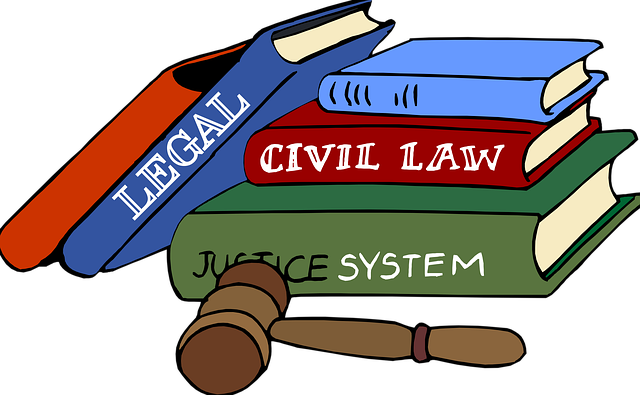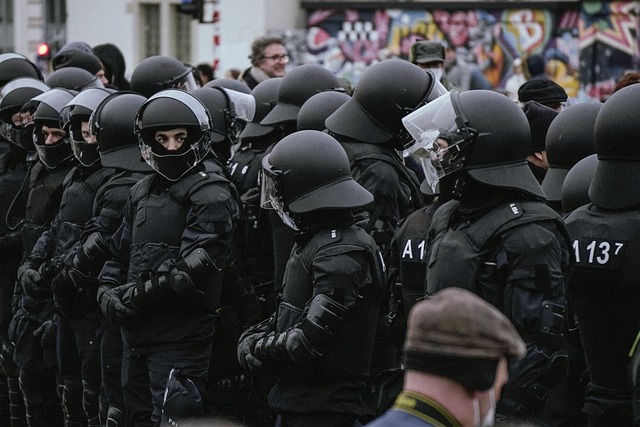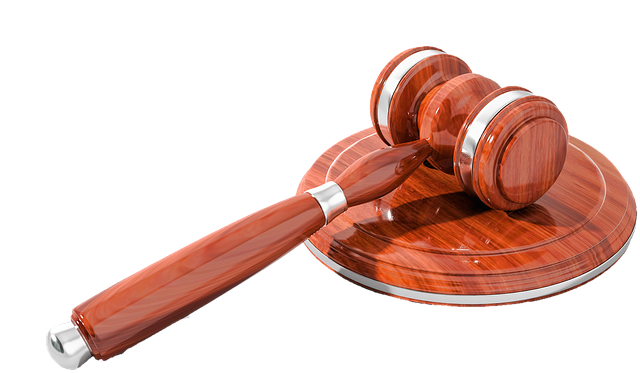Antitrust Violations: Due Process & Enforcement Strategies

Antitrust laws, enforced by agencies like the FTC and DOJ, promote fair competition and prevent busi…….
In the realm of criminal justice, ensuring fairness and adherence to legal principles is paramount. At the heart of this process lies “Due Process,” a cornerstone concept that guides the handling of criminal cases worldwide. This comprehensive article aims to unravel the intricacies of Due Process in Criminal Law Cases, offering readers a deep dive into its definition, historical evolution, global impact, and future prospects. By exploring various facets, from economic influences to technological advancements, we will uncover how this fundamental principle shapes legal systems and societal outcomes.
Definition: Due Process in criminal law refers to the fair and just treatment of individuals accused of crimes, guaranteeing them specific rights and protections throughout the legal process. It ensures that no one is subjected to arbitrary or unjustified government actions, providing a framework for due notice, fair hearings, and impartial decision-making.
Core Components:
Notice: Accused individuals must be informed clearly about the charges against them, allowing them to understand the nature of the allegations and prepare an adequate defense.
Right to a Fair Hearing: This includes the right to be present at trial, to confront witnesses, to present evidence, and to have legal representation. It ensures that proceedings are conducted impartially and that both parties have equal opportunities to make their case.
Impartial Decision-Making: Due process mandates that decisions in criminal cases be made by impartial tribunals or judges who are free from bias and external influences. This guarantees a just and unbiased outcome.
Presumption of Innocence: Accused persons are presumed innocent until proven guilty beyond a reasonable doubt. This principle places the burden of proof on the prosecution, ensuring that convictions are based on solid evidence.
Historical Context:
The concept of Due Process has its roots in ancient legal traditions, with influences from Roman law and English common law. However, it gained prominence in modern times as a response to the potential excesses of government power. The United States Constitution, through the Fifth and Fourteenth Amendments, enshrined Due Process clauses that have been instrumental in shaping criminal procedure. These amendments not only protect citizens from arbitrary deprivations but also ensure that state actions are consistent with fundamental fairness.
Due Process in criminal law cases transcends geographical boundaries, yet its application varies across different jurisdictions. Several key trends and influences shape its global landscape:
International Human Rights Laws: International treaties and declarations, such as the Universal Declaration of Human Rights (UDHR) and the International Covenant on Civil and Political Rights (ICCPR), have incorporated Due Process principles, making them universally recognized rights. These documents provide a framework for states to ensure fairness in criminal proceedings.
Regional Variations: Different regions have adapted Due Process concepts to suit their legal traditions. For example, European countries often emphasize the right to a fair trial and effective legal representation, while common law jurisdictions like the United States focus on specific procedural rights. Asian nations may incorporate cultural and religious values into their interpretations of Due Process.
Shifting Priorities: Global trends reflect evolving societal concerns. Issues such as human trafficking, organized crime, and terrorism have led to enhanced international cooperation in criminal matters, sometimes impacting Due Process protections. Balancing security needs with individual rights remains a complex challenge.
The economic aspects of Due Process in criminal law cases are multifaceted:
Market Impact: Criminal justice systems can influence economic activities, particularly through the enforcement of property rights, contract regulations, and business conduct laws. A well-functioning legal system that respects Due Process encourages investment and promotes economic growth by fostering a climate of trust and predictability.
Investment Patterns: Foreign direct investment (FDI) often considers the strength of a country’s legal framework, including its commitment to Due Process. Clear and consistent application of criminal law reduces investment risks and attracts businesses seeking stable environments.
Economic Inequality and Due Process: Critics argue that economic disparities can impact access to quality legal representation, potentially undermining Due Process rights for marginalized communities. Ensuring equal protection under the law remains a critical aspect of maintaining social cohesion and fairness.
Technology has revolutionized criminal law cases, presenting both challenges and opportunities for Due Process:
Digital Evidence: The rise of digital forensics has enabled the collection and analysis of electronic evidence, enhancing investigation capabilities. However, it also raises questions about data privacy, security, and the potential for bias in algorithms used for evidence analysis.
Online Surveillance: Governments employ advanced surveillance technologies to monitor criminal activities, but this invites concerns about citizen privacy and the potential for abuse of power. Striking a balance between public safety and individual freedoms is essential.
Artificial Intelligence (AI) in Law: AI has the potential to streamline legal processes, from case prediction to contract review. However, its use must be carefully regulated to prevent bias, ensure transparency, and maintain accountability.
Key policies and regulations play a crucial role in implementing Due Process:
Constitutional Provisions: Many countries have incorporated Due Process clauses into their constitutions, providing a solid legal foundation for individual rights. These provisions often detail specific procedures and protections, ensuring their enforcement.
Criminal Procedure Codes: Comprehensive codes outline the step-by-step process of criminal cases, including rules for arrest, search, seizure, and trial. They ensure consistency and fairness by defining the rights and obligations of both prosecutors and defendants.
International Treaties and Agreements: Bilateral and multilateral agreements address criminal matters, often incorporating Due Process principles. These treaties facilitate international cooperation while setting standards for protecting individual rights during cross-border legal proceedings.
Despite its foundational importance, Due Process in criminal law cases faces several challenges:
Resource Allocation: Adequate funding for public defenders and court systems is crucial for ensuring effective legal representation and fair trials. Shortfalls can lead to delays, backlog, and potential violations of Due Process rights.
Judicial Bias and Impartiality: Maintaining impartiality in a complex social and political environment is challenging. Judges may unconsciously influence their decisions due to personal biases or external pressures, compromising the fairness of the process.
Access to Justice for Marginalized Communities: Socioeconomic disparities can hinder access to legal resources, particularly for low-income individuals and underrepresented groups. This inequality undermines Due Process principles by creating an uneven playing field.
Strategies for Improvement:
Judicial Training and Ethics Programs: Enhancing judicial training can promote awareness of unconscious biases and ethical considerations, leading to more impartial decision-making.
Invest in Legal Aid Services: Governments should allocate resources to provide high-quality legal aid, ensuring that all individuals have access to effective representation.
Promote Transparency and Accountability: Implementing measures to increase transparency in legal processes can help identify and rectify potential biases or abuses of power.
This landmark U.S. Supreme Court case established the principle that due process requires the government to provide a fair hearing, including the right to confront witnesses. The court held that the mere presentation of evidence without an opportunity for cross-examination violated Due Process rights. This ruling emphasized the importance of ensuring that accused individuals can challenge the evidence against them.
Lesson Learned: The case highlighted the critical role of confrontation rights in maintaining a fair criminal trial, reinforcing the need for robust procedural safeguards.
In this Indian Supreme Court judgment, the court addressed the issue of due process in the context of child sexual abuse cases. The ruling emphasized the sensitivity and importance of handling such cases, ensuring that children’s rights are protected while maintaining a fair trial. The court recommended specialized courts, strict time limits for investigations, and specific procedures to protect child victims.
Lesson Learned: This case study demonstrates the adaptability of Due Process principles to cultural and societal contexts, recognizing the unique needs of vulnerable populations.
The future of Due Process in criminal law cases is shaped by evolving technologies, shifting societal values, and global collaborations:
AI and Predictive Analytics: As AI advances, its role in criminal justice may expand, offering both opportunities for efficient case management and challenges related to bias and accountability. Ethical guidelines and robust regulatory frameworks will be essential.
International Cooperation on Cybercrime: With the rise of cybercrime, international collaboration is crucial to combat transboundary criminal activities. Balancing due process rights with global cooperation requires careful negotiation and the development of consistent legal standards.
Focus on Restorative Justice: There is a growing trend towards restorative justice practices, which emphasize reconciliation and rehabilitation rather than solely punishment. This shift may influence Due Process principles by prioritization of victim participation and community reintegration.
Due Process in criminal law cases stands as a cornerstone of modern criminal justice systems worldwide. Its evolution reflects a continuous pursuit of fairness, justice, and individual rights. By understanding its core components, historical context, and global impact, we can appreciate the intricate challenges it addresses.
As technology advances and societal concerns shift, Due Process must adapt to ensure that criminal proceedings remain just and impartial. The future prospects for this fundamental principle include embracing technological innovations while maintaining ethical standards, addressing disparities in access to justice, and fostering international cooperation to combat global crimes.
Q: What is the primary purpose of Due Process in criminal law cases?
A: The primary purpose is to ensure that individuals accused of crimes receive fair treatment, including the right to a just hearing, legal representation, and protection from arbitrary government actions. It safeguards against unjustified deprivations and maintains the integrity of the criminal justice system.
Q: How does Due Process protect accused persons?
A: Due Process protects accused individuals by guaranteeing them specific rights, such as notice of charges, the right to be present at trial, confrontation of witnesses, and legal representation. It ensures that their case is heard impartially and that they have a fair opportunity to defend themselves.
Q: Can you explain the role of technology in enhancing or compromising Due Process?
A: Technology can enhance Due Process by improving evidence analysis, streamlining legal processes, and facilitating international cooperation. However, it also presents challenges, such as potential bias in AI algorithms, data privacy concerns, and the need for secure digital systems to prevent unauthorized access.
Q: What are some common criticisms of Due Process?
A: Common criticisms include allegations of judicial bias, resource disparities leading to unequal access to justice, and the challenge of balancing individual rights with public safety interests. Ensuring impartiality, equal protection, and transparent processes remain ongoing efforts in the pursuit of fair criminal justice.

Antitrust laws, enforced by agencies like the FTC and DOJ, promote fair competition and prevent busi…….

Corporate crime investigations require strict adherence to Due Process in Criminal Law Cases for fai…….

Healthcare law firms act as guardians of justice, orchestrating complex legal maneuvers in criminal…….

Healthcare compliance experts are crucial for navigating complex legal terrains, including Due Proce…….

RF Regulatory Agency investigations uphold RF spectrum compliance through meticulous data gathering,…….

In criminal law, understanding and managing litigation risk through due process is vital for achievi…….

Understanding and asserting fundamental rights under Due Process in criminal law cases is crucial fo…….

Financial fraud, a complex challenge, demands proactive measures including data analytics for early…….

Due Process in Criminal Law Cases is a cornerstone of fairness and justice, ensuring individuals acc…….

Regulatory fraud laws protect market integrity and consumers from deceptive practices, with due proc…….